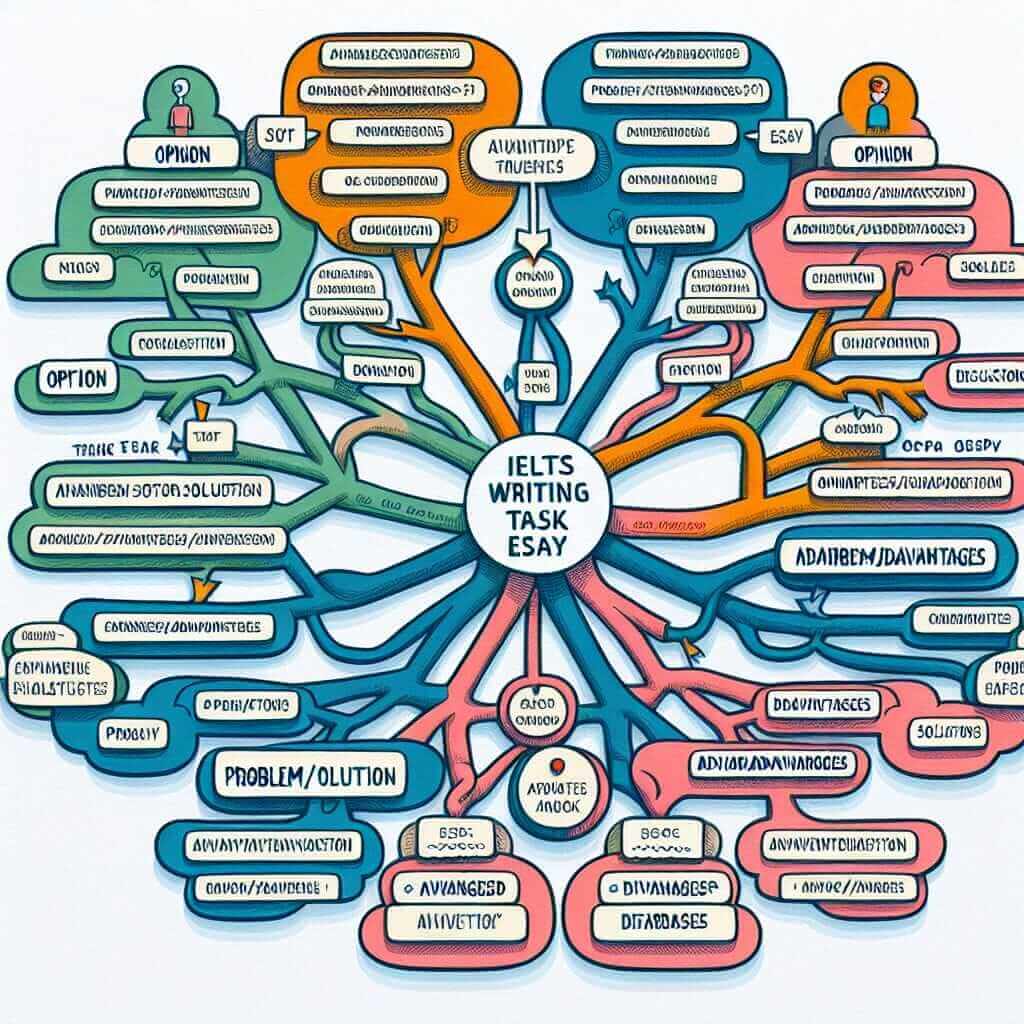As an IELTS instructor with over two decades of experience, I’ve witnessed firsthand the anxieties surrounding the IELTS Writing Task 2. Many students find themselves asking, “How many types of essays are there in IELTS Writing Task 2?” Understanding the various essay types is crucial for achieving a high band score. This comprehensive guide aims to demystify the IELTS Writing Task 2 essay types, equip you with the knowledge to tackle each one effectively, and pave your way towards IELTS success.
Decoding the IELTS Writing Task 2: Essay Types and Their Importance
The IELTS Writing Task 2 requires you to compose a formal essay of at least 250 words on a given topic. While the topics themselves are diverse, they can be categorized into distinct essay types, each with its own structure and approach. Knowing these types helps you:
- Predict potential questions: Familiarity with essay types allows you to anticipate possible questions and prepare arguments beforehand, saving valuable time during the exam.
- Structure your essay effectively: Each essay type demands a specific structure. Recognizing the type guides you in organizing your thoughts logically and presenting them coherently.
- Tailor your language and tone: Different essay types call for specific vocabulary and writing styles. Understanding this enables you to adapt your language and tone to suit the task, enhancing your overall score.
Unveiling the Four Main IELTS Writing Task 2 Essay Types
While some resources may suggest a higher number, it’s most effective to categorize IELTS Writing Task 2 essays into four primary types:
1. Opinion Essay (Agree/Disagree)
This is perhaps the most common type. You’ll be presented with an opinion or statement and asked to what extent you agree or disagree.
Example Question:
“Some people believe that the benefits of tourism outweigh its drawbacks. To what extent do you agree or disagree?”
Approach:
- Clearly state your opinion in the introduction.
- Dedicate one body paragraph to supporting your opinion and another to acknowledging the counter-argument.
- Provide relevant examples and justifications.
2. Discussion Essay (Discuss Both Views)
This type requires you to discuss two opposing viewpoints on a given issue and often asks for your opinion.
Example Question:
“Some people argue that space exploration is a waste of resources, while others believe it is essential for humanity’s future. Discuss both views and give your own opinion.”
Approach:
- Present both sides of the argument objectively in separate body paragraphs.
- State your opinion in the conclusion, drawing upon the points discussed.
- Support your arguments with relevant examples.
3. Problem/Solution Essay
These essays present an issue and ask you to analyze the problem and propose possible solutions.
Example Question:
“The increasing use of private vehicles is contributing to traffic congestion and air pollution in cities. What are the problems associated with this trend, and what solutions can you suggest?”
Approach:
- Clearly identify and explain the problems in the first body paragraph.
- Dedicate the second body paragraph to outlining feasible and realistic solutions.
- You may offer your opinion on the most effective solution.
4. Advantages/Disadvantages Essay
This type asks you to analyze the benefits and drawbacks of a particular trend, situation, or invention. You may or may not be asked to provide your opinion.
Example Question:
“Online learning has become increasingly popular in recent years. Discuss the advantages and disadvantages of this trend.”
Approach:
- Devote one body paragraph to discussing the advantages and another to the disadvantages.
- Ensure a balanced discussion, presenting both sides fairly.
- If asked, offer your overall opinion in the conclusion.

Tips to Ace Your IELTS Writing Task 2 Essays
- Practice consistently: Familiarize yourself with different essay types and practice writing within the time limit.
- Analyze sample essays: Pay attention to the structure, language, and how arguments are presented in high-scoring essays.
- Expand your vocabulary: Use a wide range of vocabulary specific to the essay topic to demonstrate language proficiency.
- Proofread meticulously: Allocate time for proofreading to correct grammatical errors and enhance clarity.
Remember, mastering the art of IELTS Writing Task 2 requires consistent effort and a strategic approach. By understanding the different essay types and implementing the provided tips, you can confidently approach the exam and achieve your desired band score.